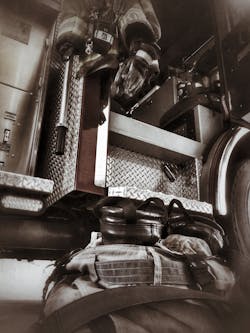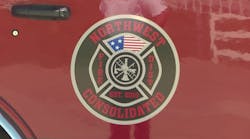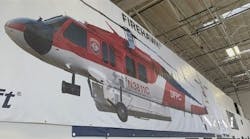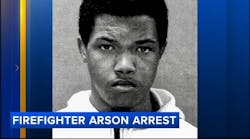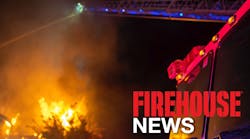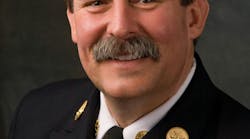Little stands out to me more in my first year in the volunteer fire service than the tireless hours spent washing the apparatus. As is the case for so many new firefighters, the feeling of pride in my firehouse was one of the very first notions instilled in me—and it still stands strong to this day.
Eager for anything and everything to do with the daily happenings of the firehouse, I often found myself on a warm summer day standing on the front bumper of the engine, scrubbing the windshield and waving at cars as they drove by. As a moderately slow firehouse, located in a mixed suburban and rural community, rarely was there much going on in the way of station activity with the exception of Monday night drills. I was there, often by myself, because I wanted to be there. I was there because I took pride in my station and my apparatus.
Fast-forward a couple of years, and I was moving two duffle bags of clothes and belongings into a new firehouse several counties away, this time as a live-in member. In pursuit of my dream of becoming a career firefighter (and determined to learn as much as I could along the way), I somewhat reluctantly bid farewell to a laid-back 300-call-a-year department, and chased the greener grass on the other side.
Known regionally for their high call volume, training opportunities, and live-in program, I was excited but nervous to enter a program where I would live full time at a busy firehouse. Here I would be surrounded by like-minded young firefighters, and mentored by experienced paid and volunteer staff whose résumés extended up and down the East Coast.
When I first walked through the doors and gazed at the shiny, clean engine and tiller truck, my very first thought was “wow, this department has a lot of pride.” To me, at that time, pride almost exclusively meant keeping your things nice.
Anyone who has spent any time in the fire service has heard some variation of the proverbial “take pride in what you ride” speech. It didn’t take long for me to see that this department took care of their things, not out of pride, but out of responsibility. They were proud of what they rode, obviously. What they were more proud of, however, was HOW they rode it. Their pride stemmed from the assertion that they were professionals at their trade, and when it came time to go to work, everyone knew and executed their jobs well. If someone wasn’t performing up to expectations, corrective training would either fix it or lead them out the door. Their daily concern wasn’t for how their truck would place in the annual “shiny” competition; it was for the functionality of their equipment and crew. And they held a high standard.
By now some readers may see the direction I’m heading. I’d like to preface my soapbox by saying that I’m young and opinionated, probably pretty naïve still, surely idealistic, and I love the fire service. That being said, I’m also not worried about hurting anyone’s feelings. As I sit here typing, I can’t help but glance over at the “Firefighter’s Ten Commandments” hanging on my captain’s desk at work. Number One: “Thou shalt always protect and save lives” … at least I know there are some people out there who agree with me.
Anyone who puts on a shirt, hat or belt buckle adorned with the words “fire department” has an inherent responsibility to the community they serve. I think, for the most part, that is pretty widely agreed upon. What I don’t understand is why so many fire departments nationwide will spend hours polishing chrome or edging a garden, while simultaneously overlooking the preparedness of their personnel. Don’t get me wrong; my argument is not against station and apparatus upkeep. I honestly do take pride in the appearance of my engine and firehouse, and don’t mind a little elbow grease to keep it nice. I take an immense amount of pride in knowing that the community sees that my crew and I care for the rigs and station. Coming from a volunteer background, I also understand the importance of your image in the community, especially when you rely on donations to keep the lights on.
Something that has become evident to me in recent years, however, is that the public largely takes their fire protection for granted. They are taught in school that if they have an emergency, they call 9-1-1 and a fire truck shows up and handles that emergency. As far as they are concerned, the “fire trucks” are there and there are “firefighters” on them so they see no reason for concern. I often wonder what the citizen would say, however, if someone sat them down with them and explained that, while the trucks in the station are nice and pretty, the crew that rides them aren’t fully prepared to handle that emergency. Even more so, that such a complacent attitude is largely the status quo for the fire service.
As someone who embraces the fire service as a lifestyle, and chooses to ride a fire engine for both a paycheck and also in my free time, I can appreciate the fact that, yes, I’m probably a little higher energy than most. I do, however, believe that the fire service is in dire need of a culture shift. We owe it to the people we swear to protect and serve to give ourselves a good old-fashioned gut check and look at how we are prioritizing our activities and time spent at the firehouse.
Can you look at your department and honestly say you are fully prepared for that 3 a.m. first-due box alarm with people trapped, both operationally and tactically minded? Are your hoses packed to pull pretty? Or are they packed to look pretty in the parade? Yes, there is a difference. Does your crew, volunteer or career, fully understand their individual responsibilities on first-, second-, and third-due assignments? Does your nozzle firefighter understand the gallons per minute coming out of their nozzle? Do they understand when they potentially need more? Does your pump operator? Has your forcible-entry firefighter taken the time to become proficient with their irons and alternative means of entry? Or is it just the seat they hopped in after the tones dropped. Better yet, how has your company officer prepared to command your crew? Call me critical, but in a culture that claims to prioritize the public’s safety and well being, and one that so readily boasts the notion of “pride,” what is our excuse to fall short on any of these considerations? It’s not like people’s lives hang in the balance or anything.
The point of my rant is not to condemn pride; in fact, it is the very opposite. Take pride in your department or company and their traditions! Just always remember that whether volunteer or career, our “job” description is firefighter. It is the responsibility of each and every one of us to sit down and look at how we are situated for our next emergency. If we can, as a culture, accept the idea of spending a little more time practicing advancing handlines, conducting primary searches, and familiarizing ourselves with our coverage areas, we will be setting ourselves up for success on the fireground.
At the end of the day, detailing that pinstripe for the third time this month probably won’t be the muscle memory necessary to remember to check up high for a bunk bed. Strive to center that pride on how well your crew operates when the tones drop. Keep your equipment nice so it operates at peak functionality when smoke is showing; if you successfully do so, the pride of “keeping your things nice” will inadvertently fall into place. Don’t just take pride in “what you ride,” take pride in HOW you ride it! I know my crew is the best one out on the streets. Is yours?
